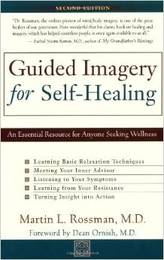 detritus along Lake Travis
detritus along Lake Travis
Most of my HIV patients used to die ... now most don't ... Some still do, of course. My Lyme patients, the sickest ones, want to die but they can't. That's right, they want to die but they can't. The most common cause of death in Lyme disease is suicide. In the current day, if one compares HIV/AIDS to Lyme Borreliosis Complex patients in issues of 1) access to care, 2) current level of science, and 3) the levels of acceptance by doctors and the public, patients suffering with advanced Lyme Borreliosis Complex have an inferior quality of life compared to those with HIV/AIDS in NC. This statement may seem heretical to some of you, I'm sure. But I can say this with authority -- and I am really the only one in this room today who has the intellectual and experiential authority to do that.
Unfortunately, suicide is not uncommon among those with Lyme because the quality of life that Lyme and accompanying tick-borne diseases leave people with is so low. There are a variety of reasons that can lead to patients taking their own lives. First and foremost, Lyme causes horrible physical pain that leaves them living in a hellish existence. Many have difficulties finding doctors to prescribe adequate pain relief as they’re seen as drug seekers and/or because of restrictions due to the “war on drugs.” For many pain doctors who don’t understand late disseminated or chronic Lyme disease, they can’t tell nor do they believe how bad the pain really is.
Getting treatment for Lyme disease itself is also difficult due to medical politics around Lyme disease. The nearest medical practitioner to Austin who openly treats Lyme is in a suburb outside Dallas; the second nearest doctor is in Louisiana and is over a six hour drive away. (There are others who practice covertly within Texas, but one won't find them on an internet search.) When I was first diagnosed with Lyme, my chemical sensitivities were too severe for me to be able to travel out of Austin to find treatment which greatly limited my options. For others, their difficult financial situations prevent travel and seeing doctors who are out-of-network. Many years ago, there was a nurse practitioner who used to openly treat Lyme in Austin, but she now practices in Washington, D.C. due to Texas Medical Board politics. Both the doctors who treat Lyme and the patients with Lyme suffer greatly due to these political issues when treatment is difficult to administer and receive.
The fatigue that accompanies Lyme is debilitating for many. At the worst of the illness, I wanted to end my marriage, but I could not because I literally could not take care of myself. I required a caregiver to buy me food and prepare it for me quite often. I couldn’t drive myself to the doctor. I couldn’t walk to the mailbox to get my Netflix discs (before the days of streaming) to keep me entertained. If I’d left my husband, I would have lost custody of my children because I couldn't have taken care of them in any meaningful way. Without my children, I would have lost everything that was important to me at that point and I would have had no reason to keep living.
Many Lyme patients are put on drug such as antipsychotics and antidepressants which carry suicide risk warnings. When I first began having severe Lyme related symptoms, my caring but misguided primary care provider decided I was suffering from postpartum depression and tried to convince me I needed an antidepressant. That is a fairly typical for most people who are dealing with the overwhelming symptoms of Lyme: Their doctors decide that this bizarre and long list of symptoms they are reporting must all be in their heads. Rather than pursuing testing and realistic solutions, the patients are put on drugs that have a potential to do more harm than good. The antidepressant that most doctors chose as a first line of defense is one that subsequent genetic testing has shown that my body cannot detoxify. Thus, taking that drug could have made me very ill or even suicidal.
Lyme can also cause mineral imbalances that cause emotional instability: I've experienced this personally when a sudden zinc deficiency cause a severe round of depression and crying. Imbalances in brain chemistry can happen with Lyme patients as well. Unfortunately, most practitioners aren't looking to find these simple-to-treat causes of depression and so patients don’t get the supplements they need to remain stable.
Likewise, the extreme lack of quality sleep that can accompany Lyme disease can lead to suicidal thoughts. During the worst years of the Lyme battle, I was only getting one hour stretches of sleep even though I was sleeping 12-16 hours a day. Continuous sleep deprivation can destroy one’s body and mind, creating all kinds of dysfunction. There's a good reason sleep deprivation is used as a form of torture.
Soon after I was diagnosed with Lyme, a friend with Lyme warned me of a severe depression that can accompany Lyme dying off. Another patient with Lyme also talked to me about it at a later date. The toxins released during a Lyme die off create a depression which makes the entire universe seem blacker than black. It is dark and awful; it defies description in ways that are unspeakable because of how horrid it is. It in no way resembles situational depression or minor depression that most of us have experienced at some point in our lives. During the Lyme induced depression, nothing in one's thoughts is accurate. I always knew that the hellish blackness would only last 48-72 hours, but there were times when I wasn't sure I would be able to make it through those few days of complete darkness.
It's not uncommon for friends and family to disappear into the woodwork over the course of a patient's Lyme struggles. When I first began having symptoms and had no diagnosis, many of my friends and family members didn't understand. Some did things that were physically harmful to me even though my ex-husband and I asked them to stop: They thought my chemical sensitivities were just delusions. Others thought the whole thing was delusional because surely no one could have as many symptoms as I was having and still have a normal CBC. They also falsely assumed that doctors can easily diagnose everything in this modern day. One of the default responses of people is that when they don't know what to do or don't know how to cope, they abandon the person in need. This happens all too often to Lyme patients who after years of suffering find themselves down to only a core group of friends who really care, and in some cases, they might not even have that.
Financial ruin is not unusual for those with late disseminated Lyme disease. I was blessed to be married to a man who earns a very successful salary. He was able to keep supporting me when I was no longer contributing to the family economy. His job provided decent health insurance, and while it doesn’t cover anywhere near half of my medical expenses, it does still pay on some of them. I applied for and upon appeal received SSDI, but the cost of my Lyme-related treatment has been over twice what I receive from SSDI in most years, and that doesn't even include needing money to pay a mortgage or eating or any of those other pesky living experiences. Were it not for my ex-husband, I would not have been able to afford the treatments that got me well. Healthcare and wellness are still a privilege of the wealthy in this nation, not a universal right.
When watching an ILADS conference video a few years, one of the keynote speakers, a doctor who was one of the best known in the field, told those attending something similar to the following: “If your patients didn’t have PTSD before they got Lyme, they will have it by the time they reach your office. They will have spent years and thousands of dollars going to doctors who don’t believe them and who can’t help them despite the fact that they have very real health problems.” The emotional distress of PTSD from health-related problems cannot be undervalued: It alone is enough to cause depression and suicidal idealization. This doesn't have to be, though, and it shouldn't be. If doctors were educated on Lyme treatment and insurance companies were willing to pay for it, the quality of the lives of patients with Lyme would increase rapidly. Instead, however, many Lyme patients are left broken, broke, and alone at the end of their battle. Is it any wonder that they choose suicide over a life of continuing struggle and pain?
© 2015 Elizabeth Galen, Ph.D., Green Heart Guidance, LLC
























 RSS Feed
RSS Feed